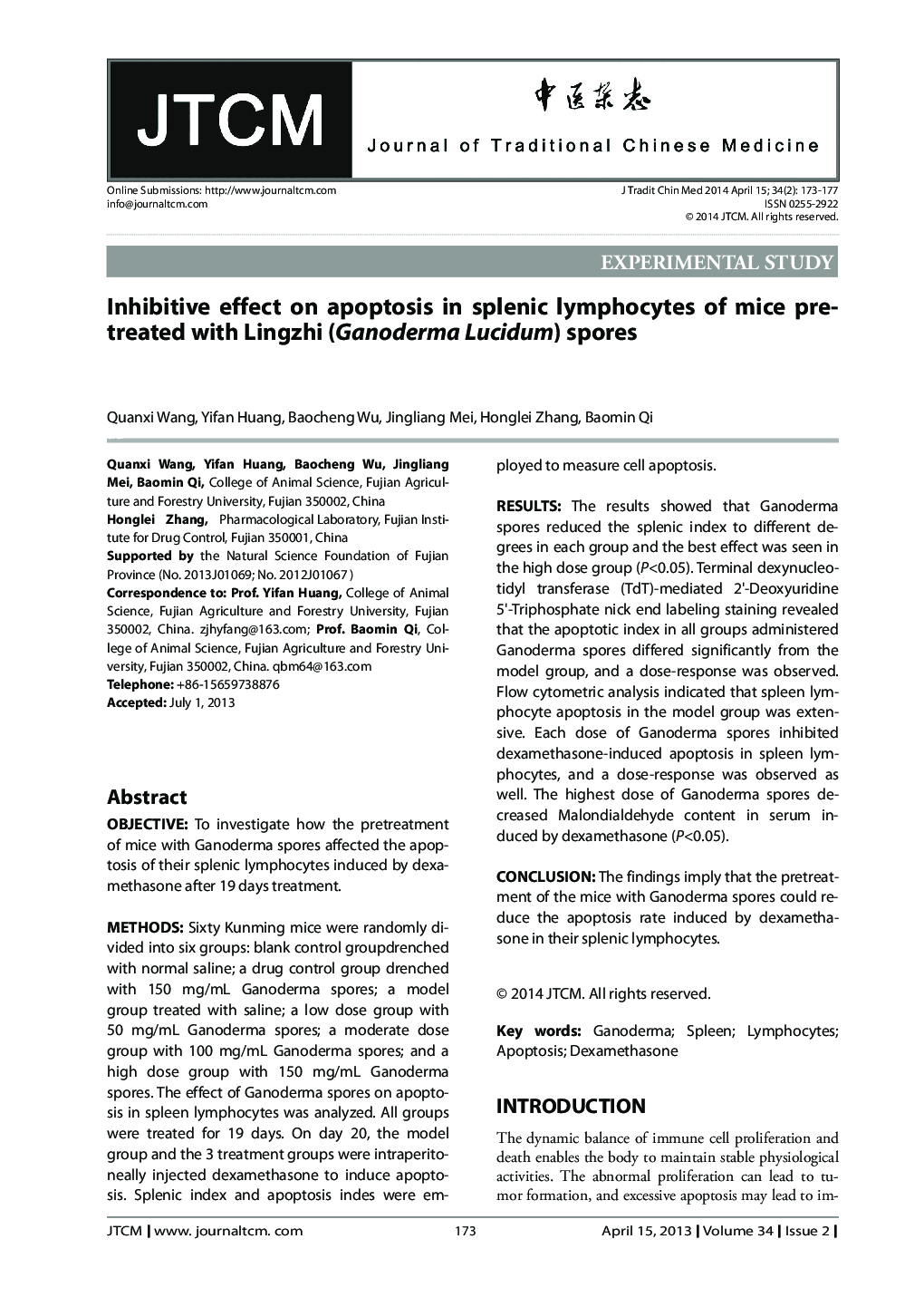| Article ID | Journal | Published Year | Pages | File Type |
|---|---|---|---|---|
| 4201165 | Journal of Traditional Chinese Medicine | 2014 | 5 Pages |
ObjectiveTo investigate how the pretreatment of mice with Ganoderma spores affected the apoptosis of their splenic lymphocytes induced by dexamethasone after 19 days treatment.MethodsSixty Kunming mice were randomly divided into six groups: blank control groupdrenched with normal saline; a drug control group drenched with 150 mg/mL Ganoderma spores; a model group treated with saline; a low dose group with 50 mg/mL Ganoderma spores; a moderate dose group with 100 mg/mL Ganoderma spores; and a high dose group with 150 mg/mL Ganoderma spores. The effect of Ganoderma spores on apoptosis in spleen lymphocytes was analyzed. All groups were treated for 19 days. On day 20, the model group and the 3 treatment groups were intraperitoneally injected dexamethasone to induce apoptosis. Splenic index and apoptosis indes were employed to measure cell apoptosis.ResultsThe results showed that Ganoderma spores reduced the splenic index to different degrees in each group and the best effect was seen in the high dose group (P<0.05). Terminal dexynucleotidyl transferase (TdT)-mediated 2′-Deoxyuridine 5′-Triphosphate nick end labeling staining revealed that the apoptotic index in all groups administered Ganoderma spores differed significantly from the model group, and a dose-response was observed. Flow cytometric analysis indicated that spleen lymphocyte apoptosis in the model group was extensive. Each dose of Ganoderma spores inhibited dexamethasone-induced apoptosis in spleen lymphocytes, and a dose-response was observed as well. The highest dose of Ganoderma spores decreased Malondialdehyde content in serum induced by dexamethasone (P<0.05).ConclusionThe findings imply that the pretreatment of the mice with Ganoderma spores could reduce the apoptosis rate induced by dexamethasone in their splenic lymphocytes.
